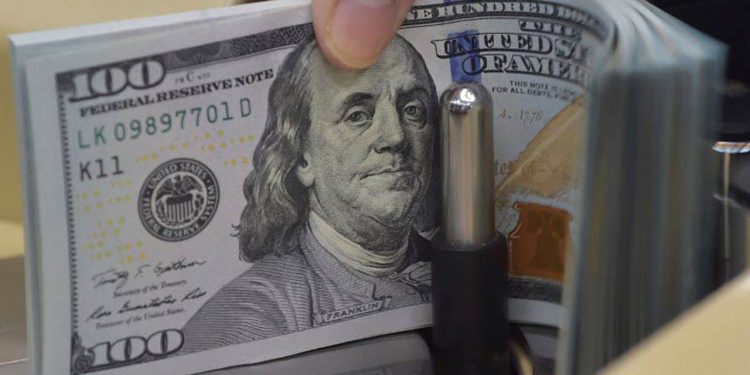The Nigerian naira made a strong recovery on Thursday, August 29, 2024, after briefly crossing the N1,600 mark against the U.S. dollar in both the official and parallel markets. The currency, which had dropped to N1,606 per dollar on Wednesday, bounced back to close at N1,593.94 in the official market.
This rebound comes as a relief to the market, which had been shaken by the naira’s sharp decline the previous day. The Central Bank of Nigeria (CBN) has been working to stabilize the currency, but the recent dip below N1,600 raised concerns about the effectiveness of these measures, despite the implementation of the Retail Dutch Auction System (rDAS) earlier this month.
Market Dynamics and Recovery
On Thursday, data from the FMDQ Exchange showed the naira’s spot rate fluctuated between a high of N1,612 and a low of N1,499 per dollar. The recovery was also observed in the parallel market, where the naira appreciated to N1,615 per dollar, improving from the N1,620 rate recorded on Wednesday.
Despite the naira’s recovery, the gap between the official and parallel market rates widened to N21.07 per dollar, compared to N13.41 on the previous day. This growing disparity highlights ongoing volatility in the foreign exchange market.
Foreign Exchange Turnover Trends
The recovery in the naira’s value was accompanied by a slight decrease in foreign exchange turnover, which fell by 3.3% to $155.52 million from $160.94 million on Wednesday. This dip in turnover suggests a cautious approach by traders amidst the currency’s recent fluctuations.
Earlier in July 2024, the foreign exchange turnover reached N11.48 trillion, or approximately $7.39 billion, at the official trading window. This represented a 10.02% increase from the $6.72 billion recorded in June. Despite this uptick in turnover, the naira’s value experienced volatility, with the spot rate rising by 4.88% to close at N1,560 per dollar in July.
Looking Ahead
The naira’s recovery from its brief dip below the N1,600 threshold is a positive development for the Nigerian economy. However, the widening gap between official and parallel market rates, along with ongoing exchange rate volatility, underscores the challenges that remain in stabilizing the currency.
As the CBN continues to adjust its strategies, including recent changes to the foreign exchange rates for customs duties, market participants will be closely monitoring the naira’s performance in the coming weeks. The ability to maintain this recovery will be critical in restoring confidence in Nigeria’s financial markets.











